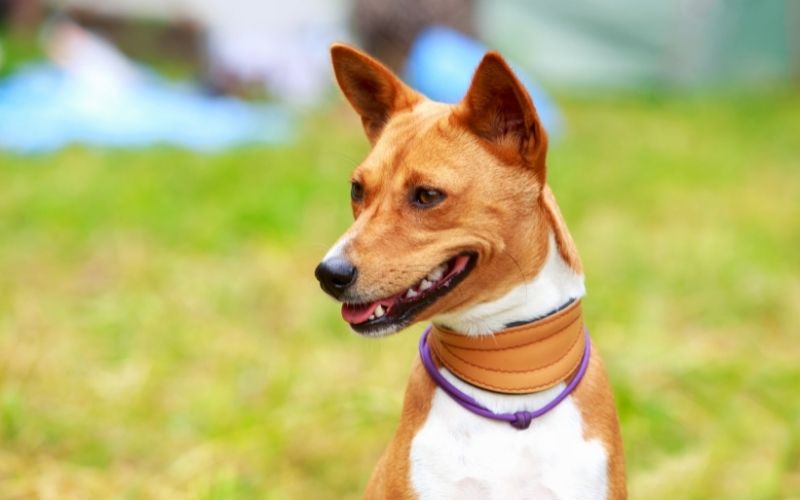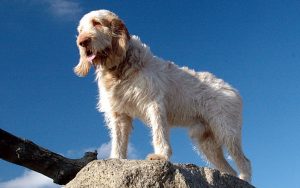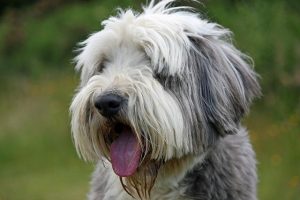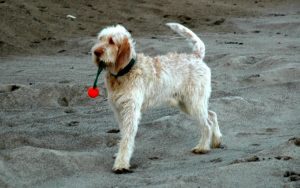Basenjis are a unique breed of dog that is known for being alert, active, and intelligent.
Also known as the African hunting dog, they are also one of the oldest breeds of in the world.
These dogs come from Africa, and they were originally used as hunting dogs.
Today, basenjis can make great pets for families who have plenty of energy and enjoy being active.
The African hunting dog is a medium-sized breed that was developed in Central Africa to hunt and kill vermin. It belongs to the ‘sighthound’ category, which specializes in vision-based hunting rather than scent. The long legs and muscular body of this zippy dog allow it to run fast over most surfaces.
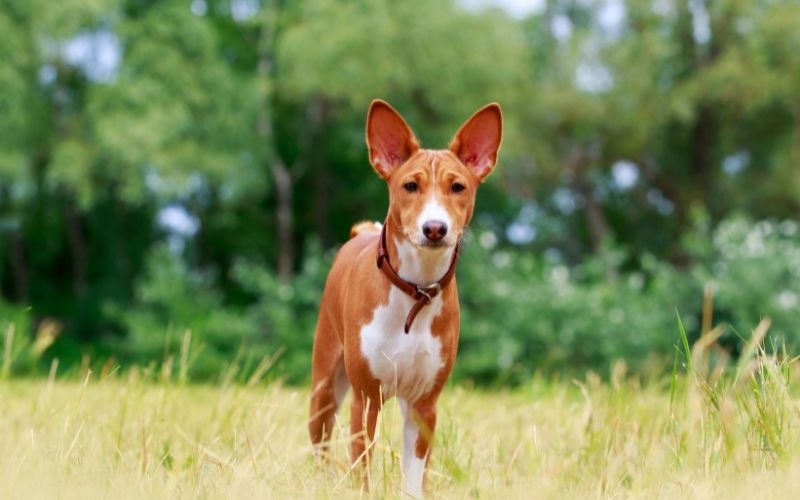
History of the Basenji
It is thought that the Basenji is one of the oldest breeds as drawings of this type of dog have been found in ancient Egypt thought to be around 2000 years before the birth of Christ.
This type of dog was used to hunt small game by tracking the animals and driving them out into nets where they could be captured.
In the early twentieth century several Basenjis were brought to England from Africa but they all died from quarantine injections but by the 1930s the dog was established in the UK and a short time later in the United States.
The modern Basenji originates from the stock that came to the UK and USA, very few, if any dogs, have direct ties back to Africa.
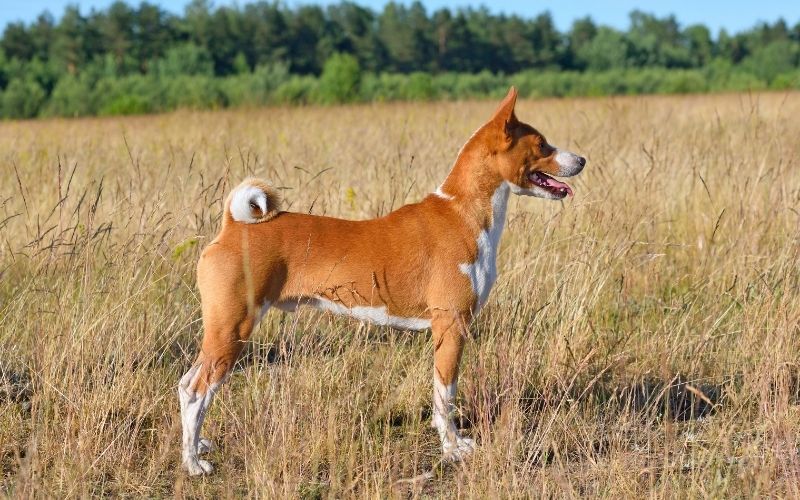
Basenji temperament
The Basenji is a classic example of a hunting dog in terms of character and temperament.
The breed is an alert and energetic animal that is friendly and investigative yet is cautious and wary of strangers.
Basenjis are loyal dogs who tend to become attached to a single person rather than a wide collection of people and tend to dislike non canine pets, although they get along well with other dogs.
Originating from Africa, the Basenji dislikes rain and cold weather, and will stubbornly refuse to leave the house whenever conditions are bad.
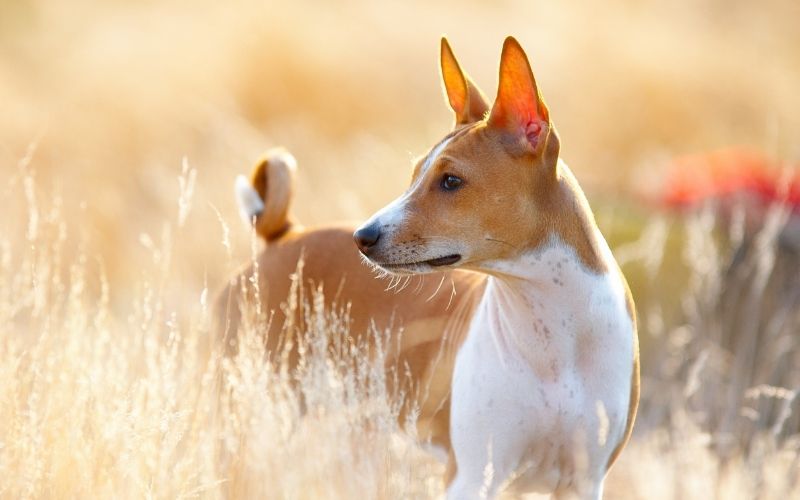
The breed is clever and athletic and enjoys climbing, they have been known to climb chain link fencing and are frequent escapers from kennels and dog compounds and runs.
Basenjis are ‘sighthounds; and this is often displayed in their tendency to stand up on their back legs, particularly when the dog is curious or is trying to see further.
According to the ‘Intelligence of Dogs‘ they are the second least trainable dog breed.
[amazon box=”191094162X” template=”horizontal”]
Is a Basenji a good family dog?
The Basenji is an active dog that needs a good daily bout of exercise to burn off his energy.
As a hunting dog Basenjis love to chase and care should be taken when out and about as if they see ‘prey’ they can be after it in a flash. This can include next door’s cat.
Basenjis enjoy family life and are loyal dogs that can be very protective if the need arises. It is important to spend as much time as possible with the dog when he is younger to ensure that he is well socialised and is comfortable around a variety of people.
Do Basenjis shed a lot?
Basenjis are clean dogs that spend long periods of time grooming themselves, in fact their attention to self care is similar to that of a cat.
A Basenji will shed hair, all dogs do, but, as a shorthaired dog with a fine coat, the amount of hair that he loses will be minimal and, unlike some breeds such as Setters, will be difficult to see and notice.
The ongoing cycle of self grooming that Basenjis adopt helps to keep shedding to a minimum and the breed is a very clean dog.
Is a Basenji a good first dog?
For a new dog owner there are other breeds that are better suited.
The sighthound group of dogs is one that is populated with breeds that are notoriously difficult to train and a Basenji may be too much for someone new to the world of dogs and dog training.
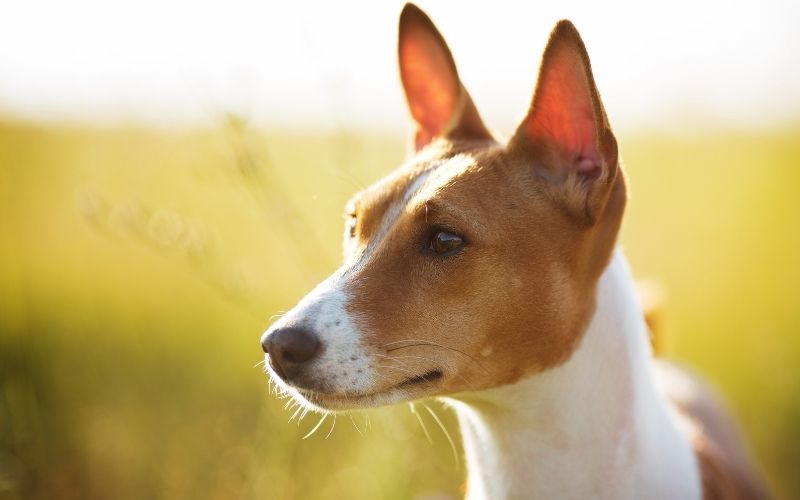
That does not mean that it is not possible for a person new to dogs to own a Basenji, it simply means that you will need to be prepared for a challenging journey as an owner and trainer.
There are breeds that are less skitty and that are easier and more amenable to training.
Can basenjis bark?
One of the most interesting things about basenjis is that they do not bark.
Instead, they make a yodeling sound that is often described as being similar to laughter.
This noise is called a “barroo,” and it is used to communicate with other dogs and people.
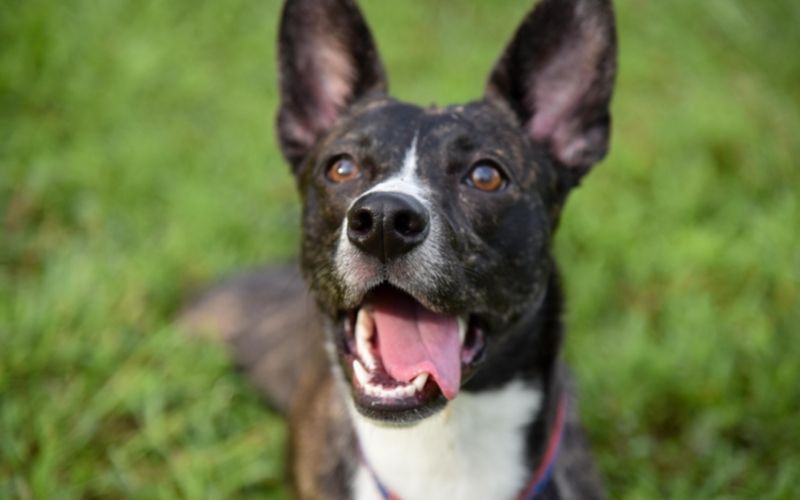
Do basenjis have an undercoat?
Basenjis have a fine undercoat that helps to keep them cool in hot weather.
This coat is usually red, black, or brindle in colour.
The coat of a basenji is low-maintenance and does not require a lot of grooming.
How much exercise do basenjis need?
Basenjis are high energy dogs that need plenty of exercise.
A daily walk or run is a good way to keep your basenji happy and healthy.
These dogs also enjoy playing games such as fetch.
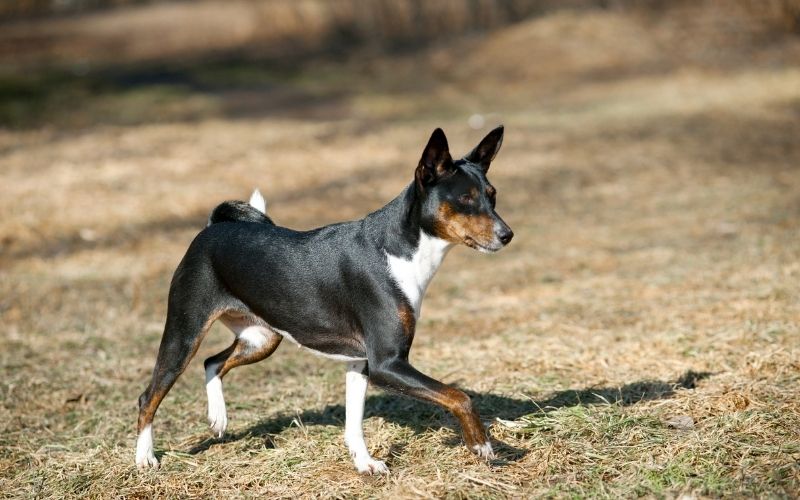
Do basenjis get along with other dogs?
Basenjis can get along with other dogs, but they may be more interested in chasing small animals.
It is important to socialize your basenji from a young age so that they learn how to interact with other dogs.
If you have another dog in your home, it is a good idea to introduce them slowly and make sure that there are plenty of toys and bones for both dogs to share.
Do basenjis like to cuddle?
Basenjis are not typically a breed that enjoys being cuddled.
They are more likely to want to play or go for a walk than snuggle on the couch.
However, every dog is different and some basenjis may enjoy cuddling with their favourite person.
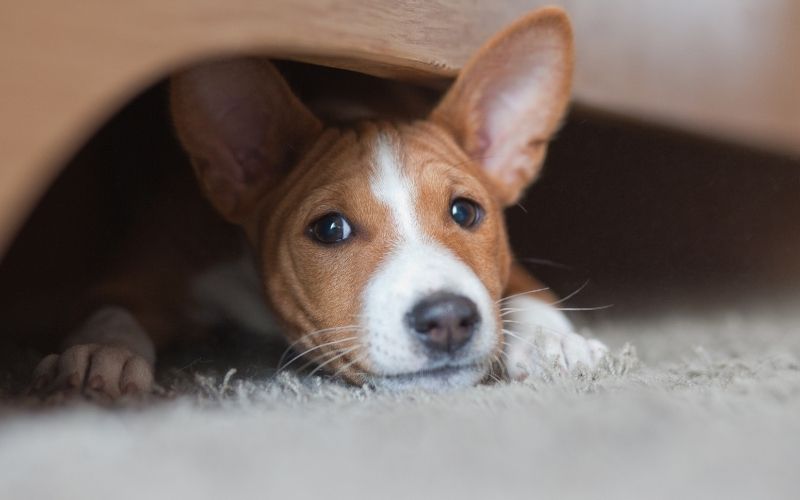
Are basenjis good with kids?
Basenjis can be good with kids if they are socialized from a young age.
These dogs are typically gentle and patient, but they may become agitated if they are teased or bothered too much.
It is important to teach your children how to interact with dogs so that everyone can have a good time.
What is the life expectancy of a basenji?
The average lifespan of a basenji is 12-14 years.
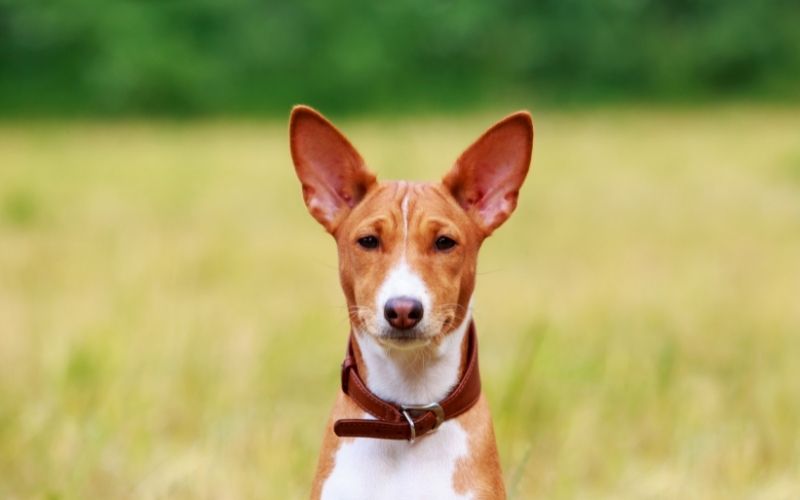
This is a relatively long lifespan for a dog, but it is important to remember that every dog is different and some may live longer or shorter lives.
Do basenjis need a lot of food?
Basenjis are not typically a breed that needs a lot of food.
A cup of high-quality dry food per day is usually enough to keep your basenji healthy and happy.
Of course, every dog is different and some may need more or less food depending on their activity level and metabolism.
Final Words
Basenjis are a unique and interesting working breed of dog that make great pets for active families.
These dogs need plenty of exercise, but they are typically low-maintenance when it comes to grooming and food.
If you are looking for a loyal and loving companion, a basenji may be the perfect dog for you.

